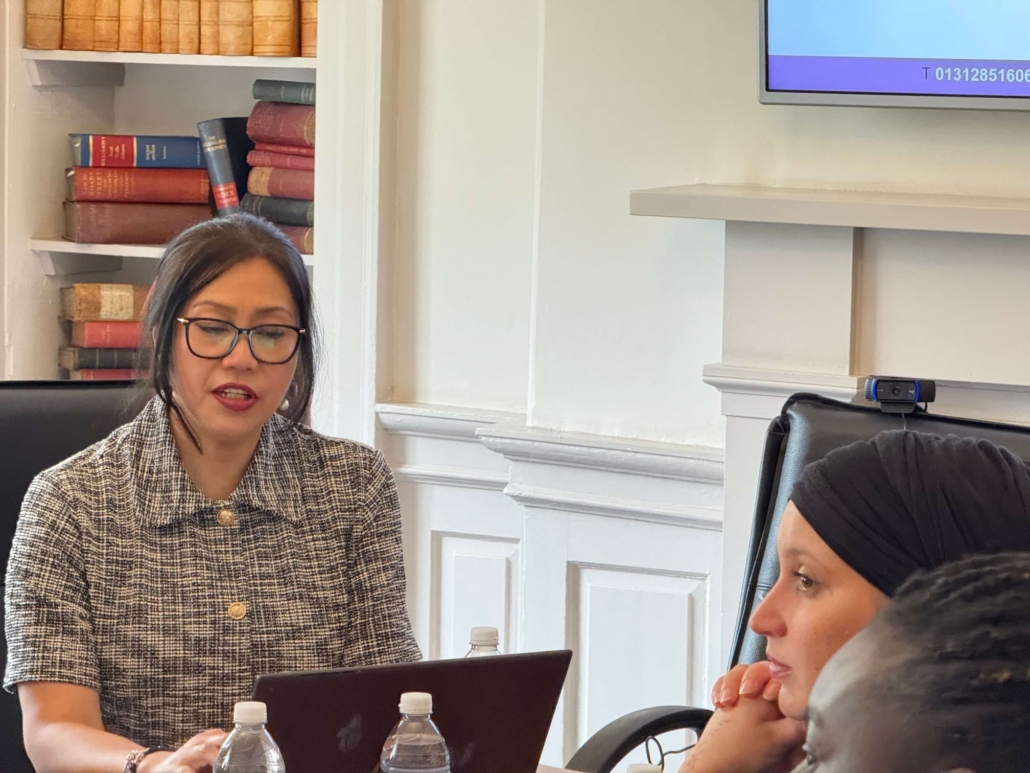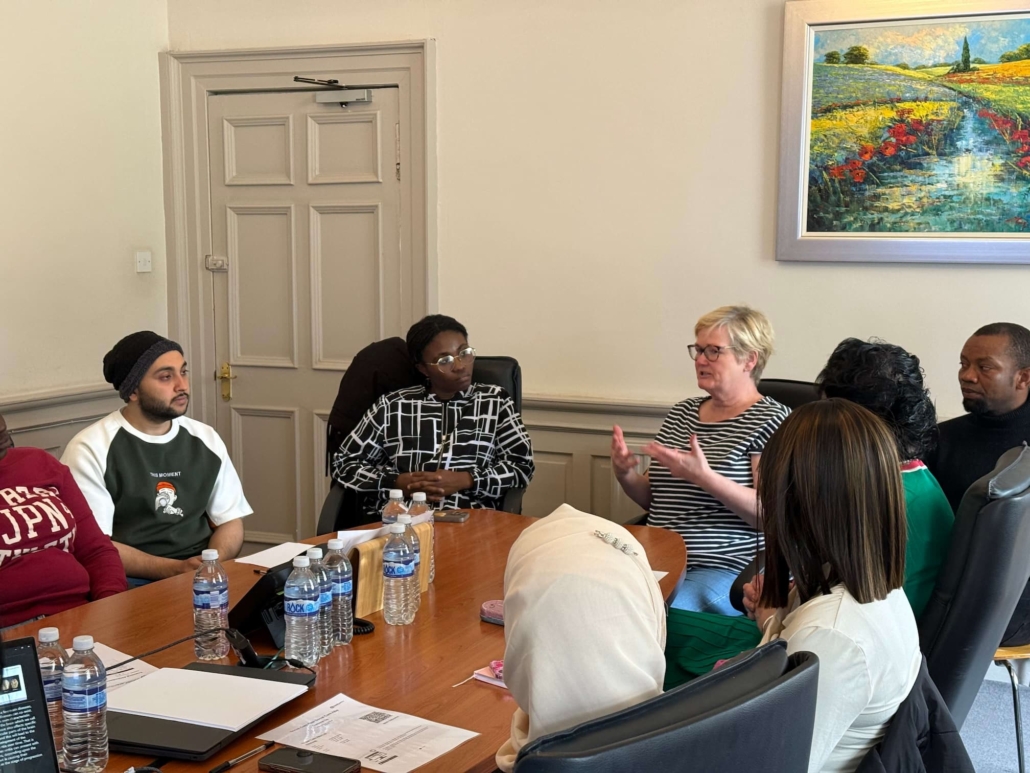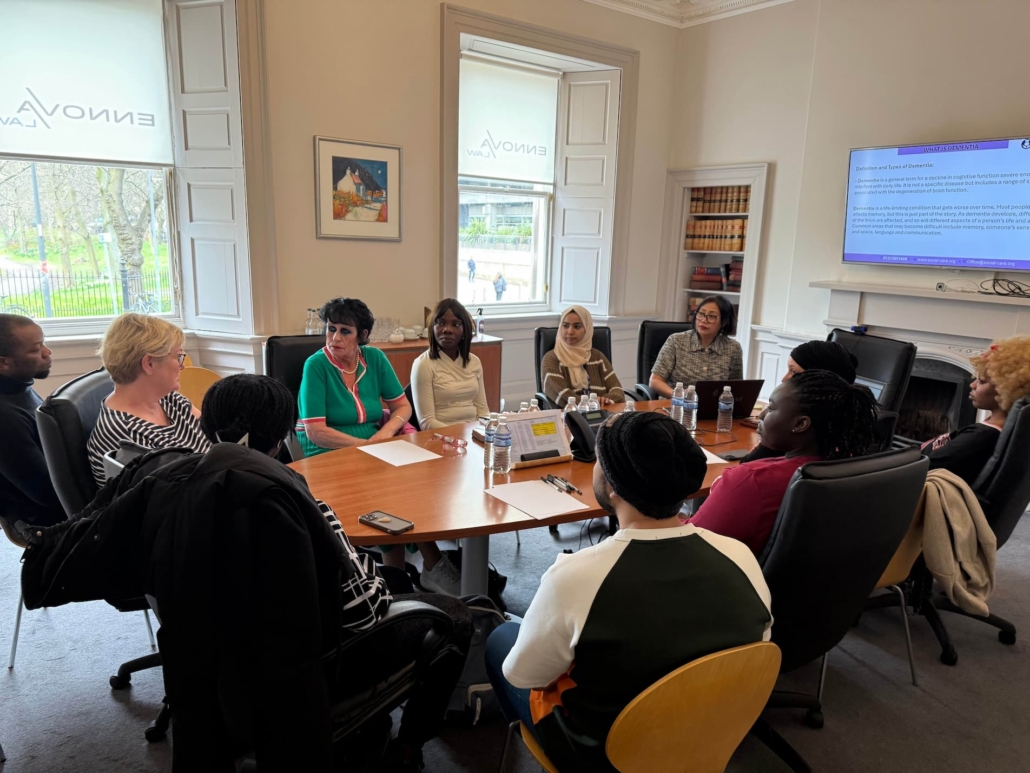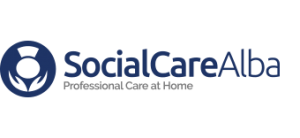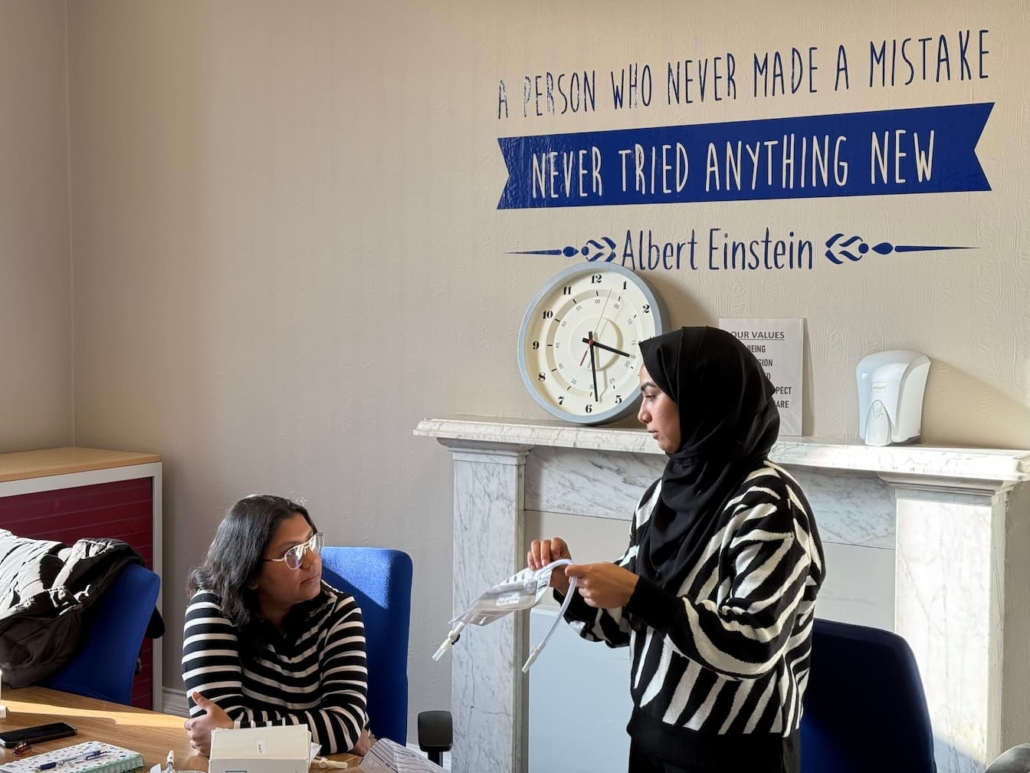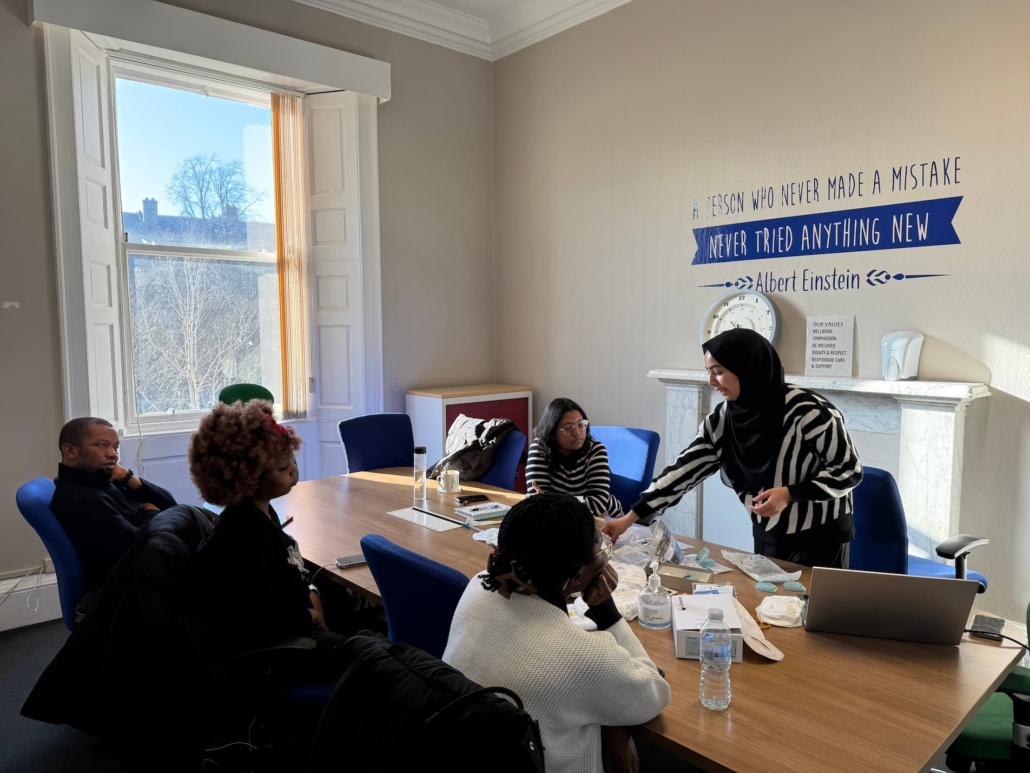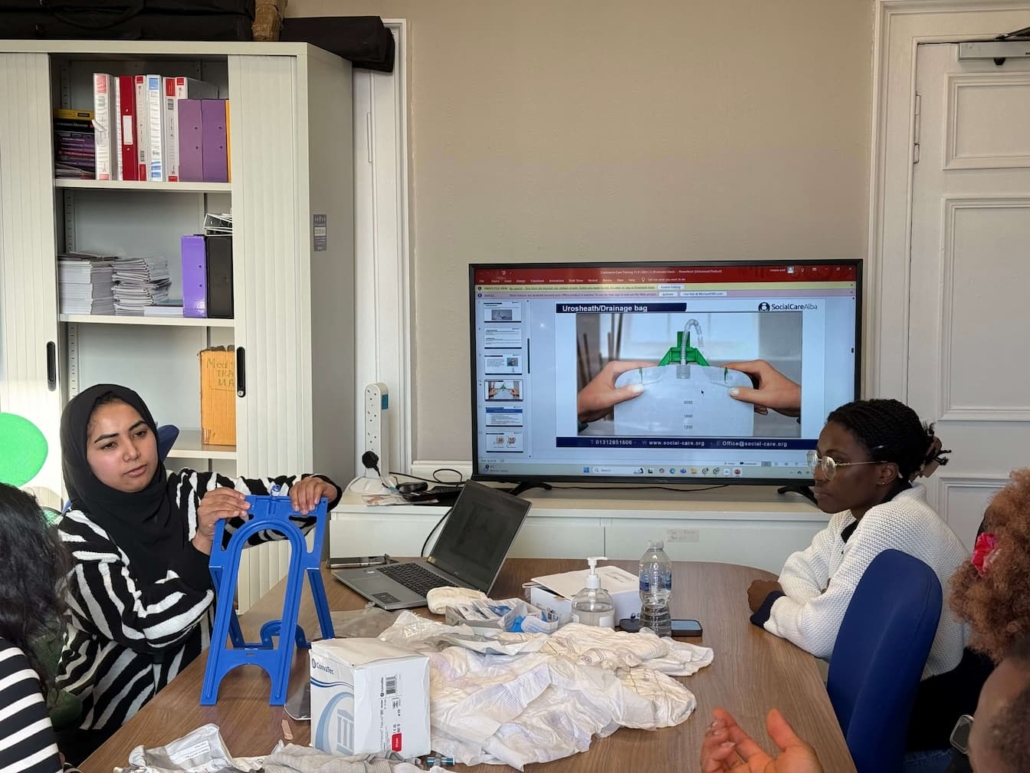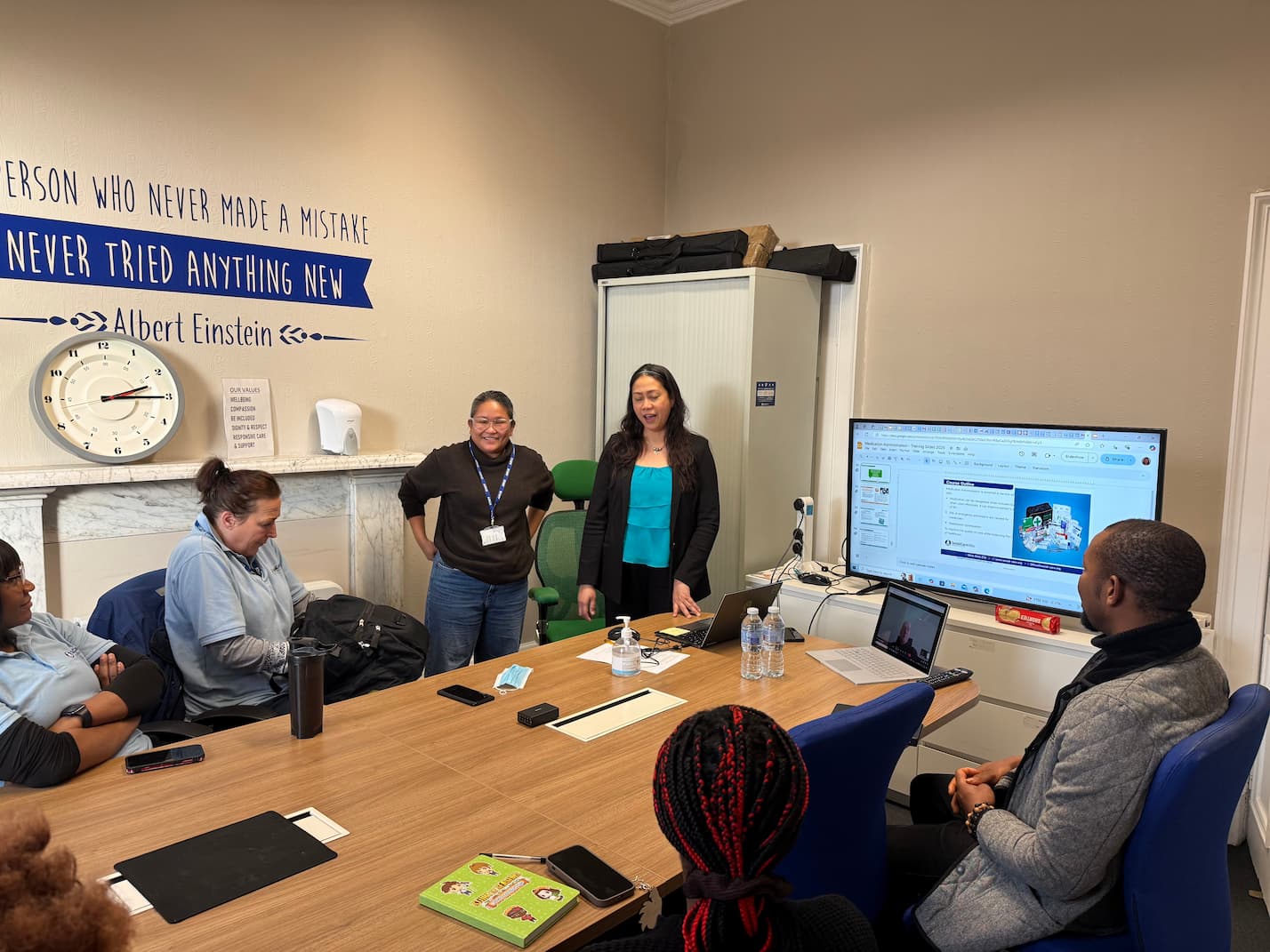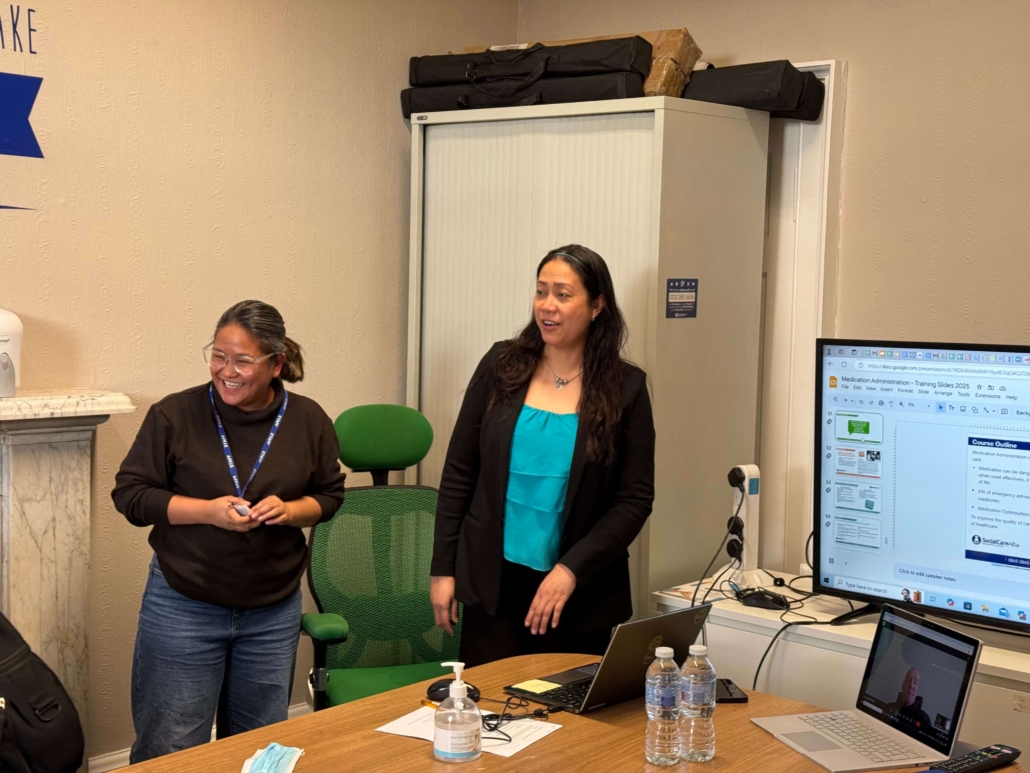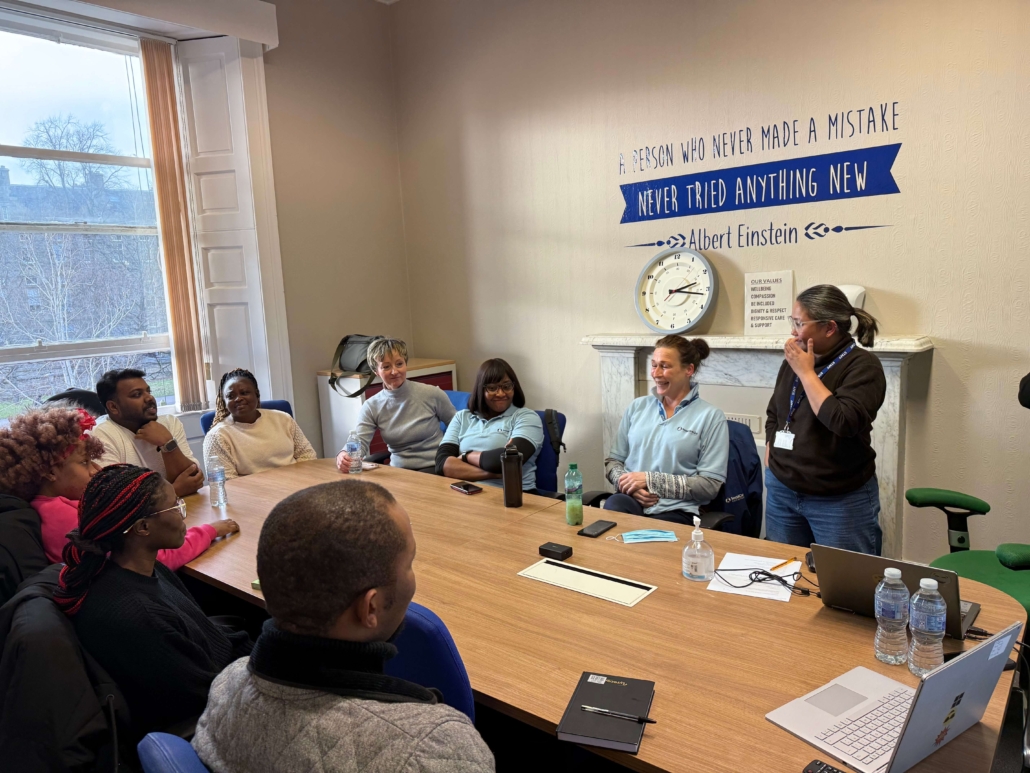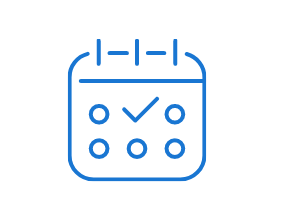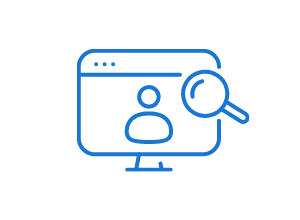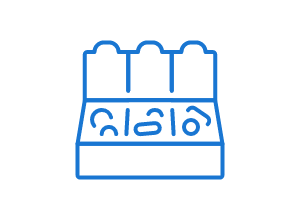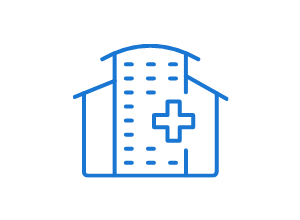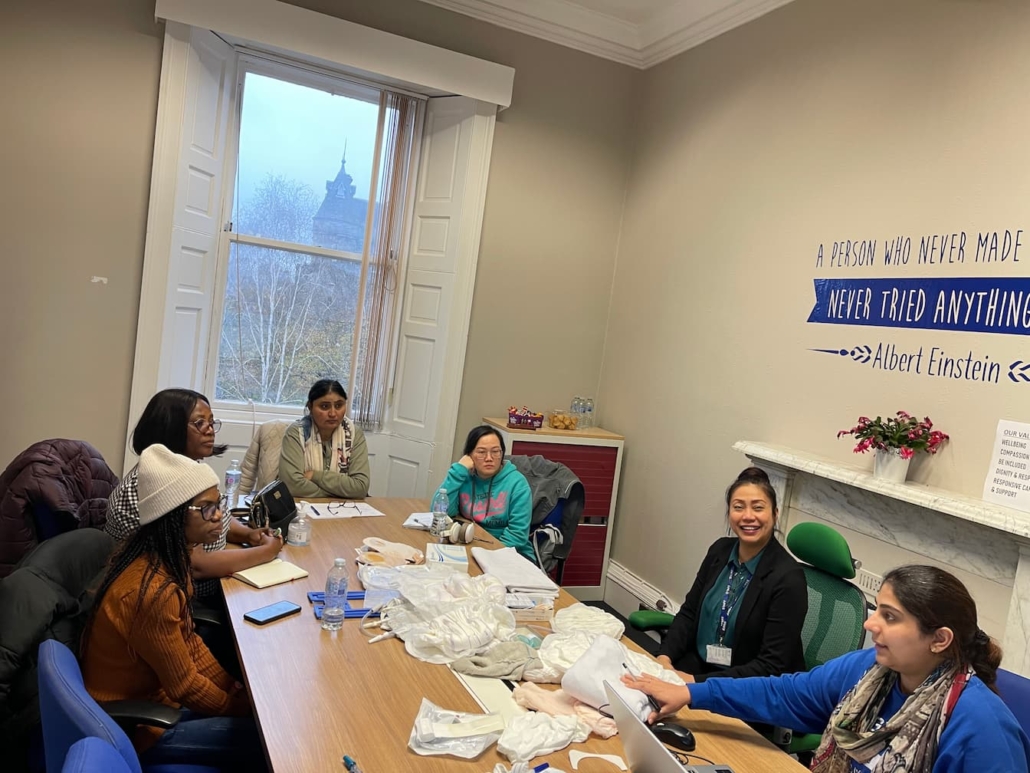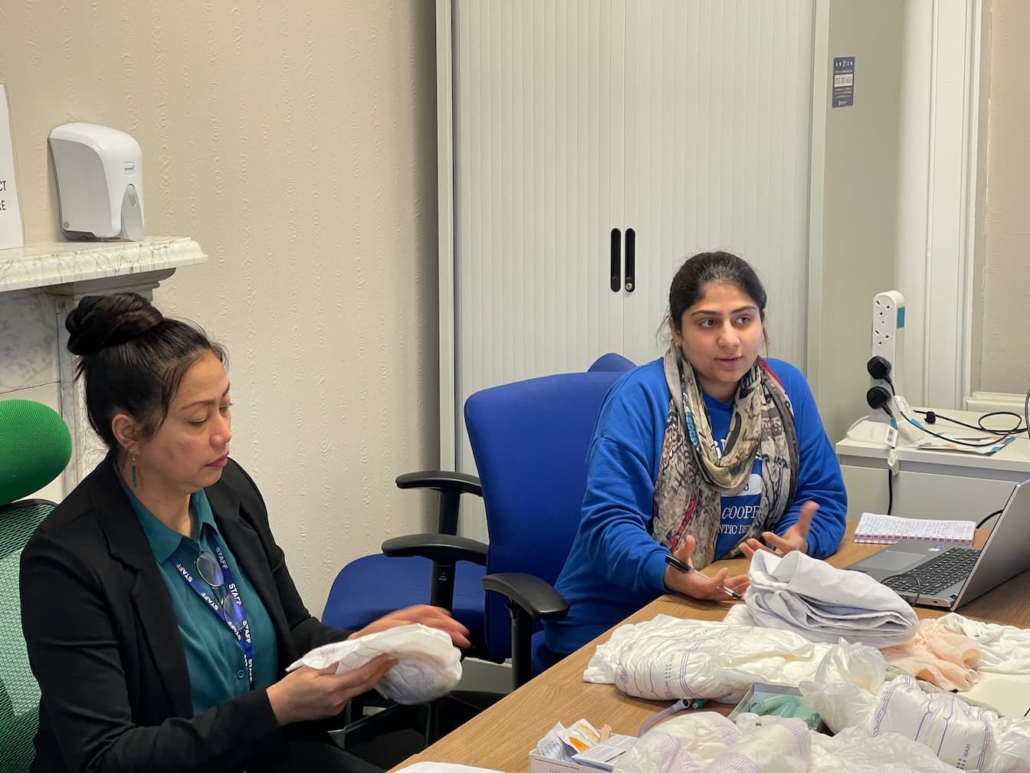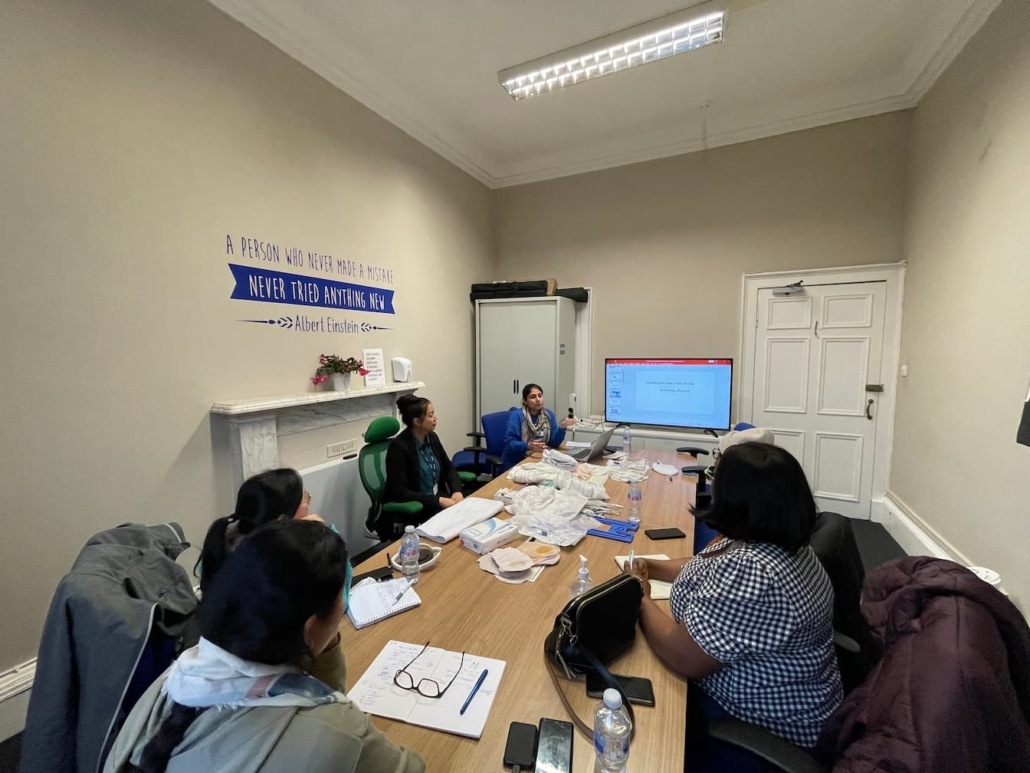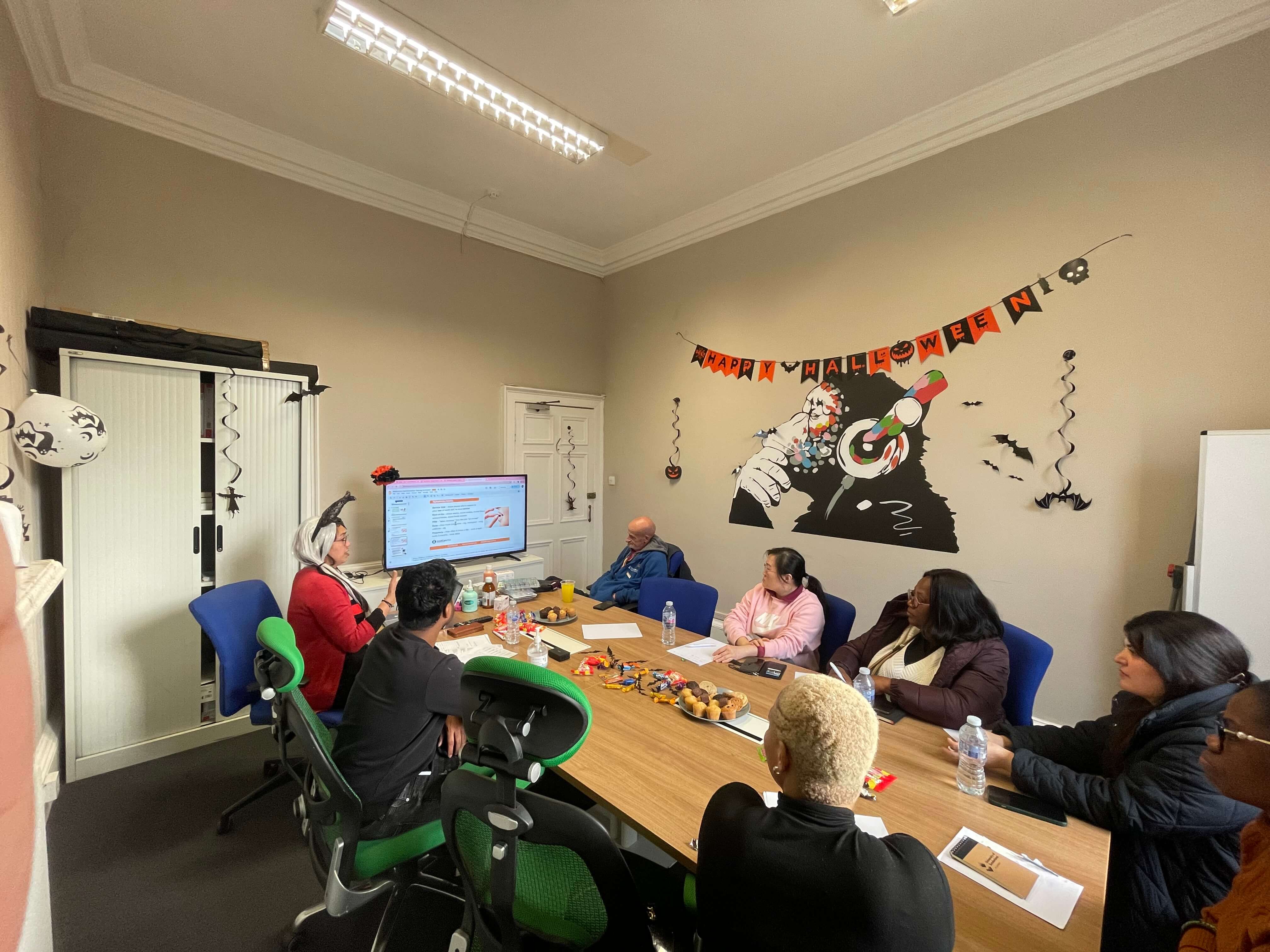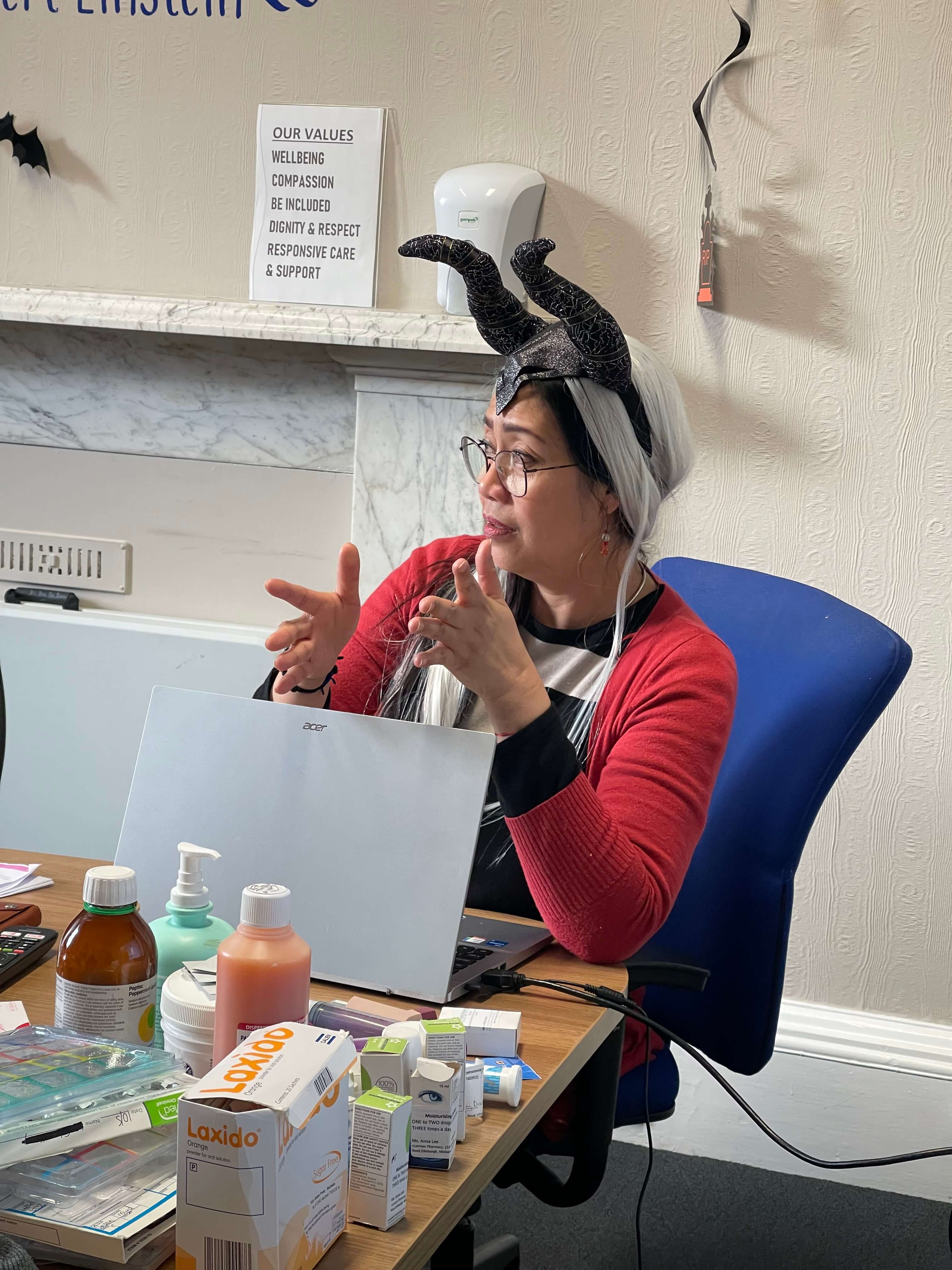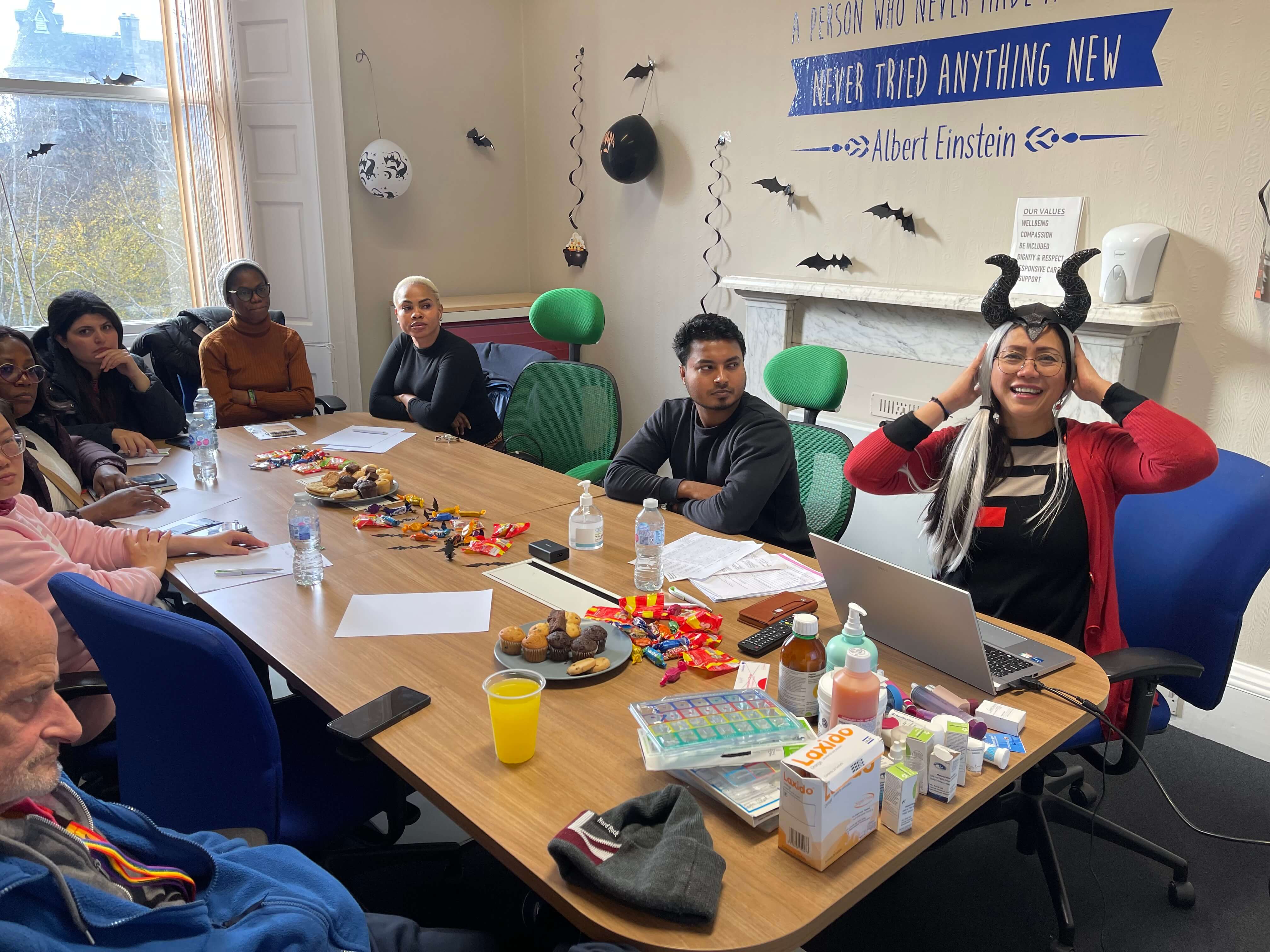At Social Care Alba (SCA), our mission is to provide compassionate and respectful care in the homes of those who need it most. Our Personal Assistants (PAs) play a key role in enhancing the well-being and dignity of the people we visit every day. But what makes a “perfect” visit? It all starts with the small details — the human connection, the focus on needs, and the respectful routine we establish. Here’s how we believe a visit should be structured:
1. Being prepared – (Respect & Professionalism)
Before entering someone’s home, take a moment to review the scheduled tasks, updates, and previous care notes. This simple step ensures you’re well-prepared, prevents any misunderstandings about why you’re using your phone, and reinforces confidence in your professionalism.
2. Start with a Warm Greeting – (Choice, Respect & Participation)
When you first arrive at the home of the person you’re visiting, the most important thing is to make them feel seen and valued. This means saying hello with a smile and if needed introducing yourself to them. This is particularly important to those who you are visiting for the first time or those with memory impairment. Taking a few seconds to say hello, helps reduce people’s anxiety and reassures them of why you are there.Having said hello, and ensuring the person you are visiting is safe, you should log into the visit via the QR code. This ensures that everything is properly recorded while allowing you to focus entirely on the person you’re there to assist. Remember, your priority is their comfort and care, so give your full attention to them. Take a moment to chat or check in on how they’re feeling. A friendly and engaging introduction sets a positive tone for the entire visit.
Top Tip:
When visiting a service user for the first time or checking your phone for medication details, ensure they understand that you’re using it for their care. Do this by referring to the support tasks you’re about to perform. For example:
“I can see in your Personal Plan that you prefer assistance with your shower before taking your medication. Are you still happy with that?”
3. Provide Care with Compassion – (Empowered, Be included)
Whether it’s helping with washing, dressing, preparing meals, or assisting with medication, this is the time to deliver the care you’ve been trained to provide. Take the time to be patient, thorough, and respectful. Let the person you’re supporting guide you when possible and remember that social engagement — even a brief conversation — is just as important as physical assistance.
At the end of the visit, make sure you add your visit notes. These should be full, accurate, and written in plain English. Avoid shorthand or abbreviations, as the people who read the notes might not understand them, and clear communication is key to providing the best care possible.
Your notes are an important part of the care process and contribute to the continuity of support for the person you visit.
Top Tip:
Involve the person you are visiting or their family when completing care notes, as many enjoy participating in this process. Being involved can make people happy and give him a sense of control over their care. This promotes active participation and helps people feel valued.
Beyond care notes, involve people in other aspects of their care, such as meal preparation, housekeeping, and daily routines—ensuring they feel included and empowered.
4. Saying Goodbye
As your visit comes to an end, it’s equally important to say goodbye thoughtfully and considerately. Always ensure that the person you’re visiting feels comfortable and secure before you leave. Take a moment to check if they need anything else — whether that’s adjusting their position, getting a drink, or just offering a reassuring word. This gives them a sense of control and helps them feel cared for.Finally, once you’ve confirmed that they’re well and settled, don’t forget to log out of the visit via the QR code. This ensures proper record-keeping and helps us maintain accurate and reliable data for the care provided.
In Summary:
A perfect visit is structured around respect, kindness, and clear communication. Always greet the person before anything else, engage with them fully during the visit, and close with a thoughtful goodbye. Be sure to check the last visit notes and allocated tasks to stay informed and organised. Lastly, remember to add detailed, plain English visit notes to ensure clear and effective communication. This simple, respectful routine ensures that the person you care for feels valued at every step of the process.
At SCA, we strive to provide not just care, but a positive and meaningful experience in the lives of those we support.
